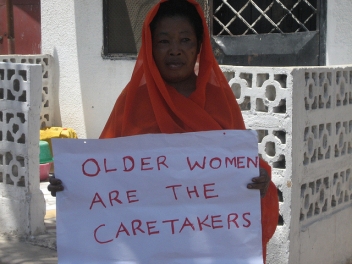 Looking back at the last 100 years since International Women’s Day started, I count myself fortunate to be born in the ‘baby boomer’ era, a couple of years after the Second World War.
Looking back at the last 100 years since International Women’s Day started, I count myself fortunate to be born in the ‘baby boomer’ era, a couple of years after the Second World War.
It has given me the opportunity to see changes over the last 60 or so years that many other generations of women have not had the privilege to see.
These changes have been colossal, not just for humanity but for women and have happened in developed and, more recently, developing countries.
Equal access?
I know there is still a long way to go, which is why the issues raised by International Women’s Day theme this year “Equal access to education, training and science and technology: Pathway to decent work for women” are still very much relevant. However, there is awareness now across all levels of society that wasn’t there 100 years ago.
Growing up in the 1950s, the situation for women was similar to what I see now as I travel around developing countries. Girls were not encouraged to go beyond the legal age for school as “everyone knew” they would just get married, have children and look after the house.
If you were able to gain more education and get a professional job, you were expected to leave as soon as you married. I remember wondering as I went through primary school why all the female teachers were “Miss”.
Stretching the boundaries of opportunity
Luckily, I had parents who were willing to give girls in the family as much choice as boys. Dad was a builder and mum a housewife who left school at 14 and worked at odd, casual jobs. However, they were very insistent that both my brother and I keep studying and choose professions that interested us.
This meant my first job as a medical technologist, working in pathology was quite out of the box for my family and friends. But I guess I have always been someone who “pushes the envelope”.
The 1960s and 1970s saw a paradigm change for women in developed countries. The momentum from the beginning of the twentieth century to give women the right to vote and to have access to jobs, started to grow. The strong women’s movement allowed women to stretch the boundaries of opportunity.
Women are now able to take out loans and get passports in their own name without needing a husband or father’s authority. Girls today often take for granted what they can do, unaware of the struggles and heartache endured by women and movements like International Women’s Day.
Women in developing countries need a voice
Unfortunately, as I travel in developing countries, the need for women to have a voice is a long way behind what we enjoy. Access to education and literacy classes, rights to inheritance, opportunities to improve their livelihoods and rights within marriage are all still things that need to be improved.
This is evident when you see women burdened by poverty, sometimes used as slaves by their families, sold in marriage or forced to earn money for their relatives. A few years ago I was travelling on a car ferry to the south of Bangladesh and got talking to young Polly, a nine year old water seller. She told me that she went to school in the morning and then worked on the boat in the afternoon. Her mother was disabled and her father didn’t have a job.
I kept thinking of my own childhood and the protection and opportunities I enjoyed, while this little one was so vulnerable to the advances from men on the boat and would arrive back at home late and in the dark.
Celebrate the advances but remember the hardship
As I work with older people overseas I see women my age and older who wear their life experience on their faces and bodies, who won’t be able to relax in old age even if they want to.
They are often the sole wage earner for their grandchildren and their lack of literacy and numeracy means that it is very hard for them to get work that can support their families.
Let us rejoice on International Women’s Day of the advances that we have seen for women, but also remember those women who have not been able to access their right to education and protection and are still bound to poverty and hardship because of that.
Read more about our work to empower older women on International Women’s Day
